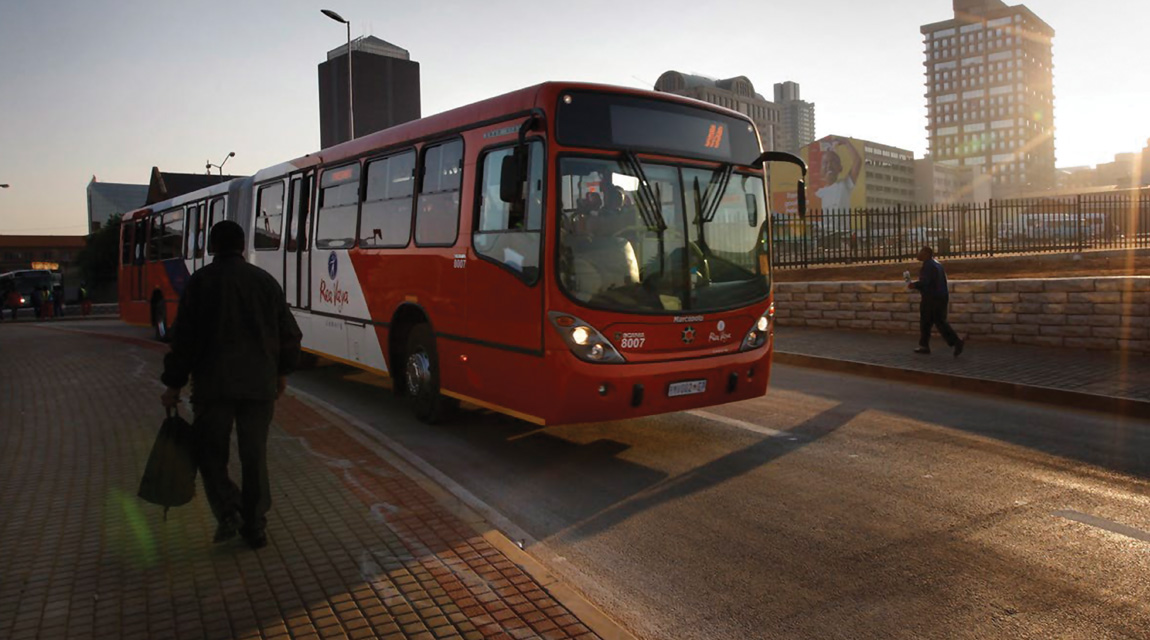Cross the “t” and dot the “I”

Taking meticulous care to comply with legislation is important, but this can be challenging with the fluid nature of policies in South Africa. MARISKA MORRIS takes a look at some of the transport legislation updates affecting bus operators
There are a few changes awaiting the transport industry as the National Land Transport Act (NLTA) Amendment Bill and the Administrative Adjudication of Road Traffic Offences (Aarto) Amendment Bill appear before the National Council of Provinces (NCOP) for finalisation, with a few others published for public comment.
At the 2018 Southern African Bus Operators Association (Saboa) annual conference, advocate Alta Swanepoel discussed some of the changes expected following the implementation of these pieces of legislation.
She explained that the NLTA and Aarto Amendment Bills still need a date for the NCOP to vote, after which they will be implemented.
Dealing differently with traffic fines
The Aarto Bill will, arguably, have the biggest impact on all transport operators. Under this Act, certain traffic violations, such as speeding, will be dealt with under administrative law rather than criminal law. Drivers will no longer face criminal charges for small traffic infringements, instead they will receive traffic infringement notices and a fine.
Failure to prove innocence, or pay the fine, will lead to demerit points. If a driver has more than 12 demerit points, their licence or professional driving permit will be suspended. The owner of the vehicle involved in the infringement will be held responsible. A driver’s infringement record is, however, private and can be accessed by a third party only with the permission of the driver.
Therefore, transport operators need to implement measures to identify the driver of the vehicle. Transport operators can, for example, install cameras to capture video footage inside the vehicle.
Operators should also consider revising employee contracts, or signing disclosure agreements, to stay up to date on any demerit points against a driver. Some infringements, such as drunk driving, will remain under criminal law with a potential criminal record and prison sentence.

Operating licences, permits and licence renewal
The NLT Amendment Bill states that an operating licence applies only to vehicles that fall into the same category. Operators will need to apply for separate operating licences for vehicles that fall under different categories.
The Road Traffic Management Corporation (RTMC) amended its transaction fees, which impacts vehicle licence renewal fees. Swanepoel noted: “Operators might have felt it after February this year. RTMC changed its national administrative traffic information system (NaTIS) fee from R42 to R72 per vehicle licence.” She added that this fee might increase further.
The Department of Transport has indicated that it will look towards licence fees as an avenue of funding. The Cross-border Road Transport Regulation, published for comment in March, also proposes new tariffs for cross-border transport permits.
Upskilling road users
The Draft National Transport Policy, published for comment in February, proposed specialised, traffic-control programmes and retesting of drivers to improve the driving skills of road users.
“Even drivers who have had licences for many years will be retested to see if they are still capable of driving,” Swanepoel explained. The draft also proposes special traffic courts, compulsory attendance of traffic schools and allocating a percentage of the roads budget for traffic-control purposes.
Mass of passengers
The 25th Draft National Road Traffic Regulation Amendment was published in April. A very important proposed change to the regulation is the increase in the mass of a person.
Swanepoel noted: “The mass of a person, used to calculate the number of persons that may sit in a vehicle, increased from 68 to 71 kg.” She added that if the Amendment is passed, there will most likely be a timeframe in which transport operators must comply.
This change might affect the number of passengers a vehicle may carry. It is of particular concern to transport operators who rely on filling a vehicle to capacity. These operators might need to increase their fees to accommodate this change in legislation.
Roadworthy certification, speed governors and driving limits
The 22nd Amendment to the National Road Traffic Regulations (that was published in 2014) has been approved, but some of the amendments still require implementation dates and are not yet in force. It will, however, be useful for transport operators to take note of some of these amendments and plan accordingly.
Under the updated regulation, vehicles older than ten years, determined by the date of first registration, will need to go for roadworthy tests every 24 months. Vintage or classic vehicles, which are older than 20 years and travel less than
10 000 km a year, are exempt. Operators will have to budget for the bi-yearly roadworthy test or consider renewing their fleet.
These amendments also include a regulation that requires all minibuses, buses and goods vehicles with a gross vehicle mass (GVM) exceeding 3,5 t and registered after December 1, 2016, to be fitted with a speed governor and limited to their specific speed limit.
Under this legislation, goods vehicles over nine tonnes are limited to 80 km/h, while buses, minibuses and goods vehicles over 3,5 t are limited to 100 km/h. Bus drivers, who operate vehicles with a GVM of more then 3,5 t, will also have limits imposed on their driving time, compulsory rest periods and will need to keep a log book.
According to Swanepoel, drivers may drive a maximum of five continuous hours, or 400 km. A maximum of 15 hours in a 24-hour period is allowed with a required 15-minute resting period every five hours or
400 km. The driver needs to have a minimum of nine hours continuous rest in every 24 hours.
If the journey takes more than 15 hours, a driver will be required to stop over and rest at “an adequate sleeping facility with sufficient sleeping space for an adult”.
Published by
Mariska Morris
focusmagsa



